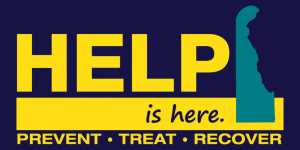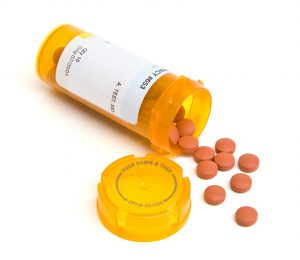WILMINGTON (Oct. 3, 2018) – As a way to engage more Delawareans suffering from substance use disorder in treatment, while also meeting their accompanying needs for housing, employment, education and other wraparound services, the Department of Health and Social Services (DHSS) today launched its START Initiative with a press conference and a daylong forum for stakeholders.
With the START Initiative, DHSS’ Division of Substance Use and Mental Health (DSAMH) will increase access to care and treatment for individuals living with substance use disorder by fostering system-wide improvement based on a framework that measures client outcomes. Last week, DSAMH launched a new online treatment referral system called Delaware Treatment and Referral Network (DTRN) that allows Delaware health care providers seeking substance use disorder treatment or mental health services for their patients to make an online referral with one of 24 organizations included in the first phase. Additional addiction and mental health treatment providers will be included in subsequent phases.
“These are important steps forward in meeting the immediate needs of people suffering from addiction in our state,” Governor John Carney said. “When I was running for Governor, I heard from many Delawareans about the problems their loved ones had in accessing treatment. With the new online treatment referral dashboard and peers in emergency rooms and at other contact points, we will engage people in getting the connection to treatment that they need and also be the support they can turn to in order to remain connected to treatment.”
In its first year, the Substance Use Treatment and Recovery Transformation (START) Initiative is expected to engage and treat more than 900 new clients using certified recovery peers connected to emergency departments, primary care, urgent care, EMS, police officers and families as the gateway. The peers will assist individuals suffering from substance use disorder as they navigate their way through both the treatment and social services systems, helping meet their needs for housing, transportation, employment, social services, legal or financial counseling, and other behavioral health or medical care. The START Initiative builds on the best evidence-based treatment and wraparound services needed for long-term recovery, but also offers technical supports to providers in the community to evaluate for quality and standards.
As part of the START Initiative, DSAMH awarded contracts to Brandywine Counseling & Community Services and Connections Community Support Programs as Level 4 providers, the highest level in Delaware for SUD treatment. That means the two organizations can provide clients with every level of treatments and services, including all three FDA-approved forms of medication-assisted treatment. Later this fall, DSAMH expects to add more treatment providers at each level of care. DSAMH also awarded a peer recovery specialist contract to Recovery Innovations International to help navigate individuals into treatment and to maintain their connection to that care.
“To reduce the toll that addiction is taking across our state, we must engage people suffering from substance use disorder in treatment available today. We know what works, now we need more patients with access to medication-assisted treatment combined with behavioral counseling and social supports,” said DHSS Secretary Dr. Kara Odom Walker, a board-certified family physician.
In April 2017, Secretary Walker asked a team of researchers and clinicians from the Johns Hopkins Bloomberg School of Public Health to conduct a review of Delaware’s treatment system. In July 2018, the Johns Hopkins team issued a 33-page report that proposed four main strategies:
- Increase the capacity of the treatment system.
- Engage high-risk populations in treatment.
- Create incentives for quality care.
- Use data to guide reform and monitor progress.
“The START Initiative is one of the first steps forward in embracing the recommendations of the Johns Hopkins report to strengthen the treatment system in our state,” Secretary Walker said. “Our goal is to offer care to individuals suffering from opioid addiction that is high-quality, comprehensive, coordinated, evidence-based and person-centered. The treatment hubs will care not only for the individual’s treatment needs, but also navigate the social determinants of health that often matter more in achieving overall health and positive treatment outcomes.”
In DHSS’ Fiscal Year 2019 budget, the General Assembly approved new addiction-related funding:
- $990,000 for SUD assessment and referral to treatment of people who have overdosed or are suffering from addiction and have been brought to emergency rooms.
- $328,500 for 20 additional sober living beds.
- $100,000 for naloxone – the prescription medication that can reverse the effects of opioid overdoses – for first responders statewide.
Lt. Governor Bethany Hall-Long, who chairs the Behavioral Health Consortium, said the START Initiative dovetails with the action items in the consortium’s Three-Year Action Plan. “Better connecting people to care when they need it most was something we heard loud and clear from the community during the Behavioral Health Consortium’s statewide forums,” she said. “Peers who have been through the recovery process will play an important role in not only connecting individuals to those services, but also supporting individuals through treatment and involving family members as needed. The START Initiative is the next step to ensuring a more comprehensive and robust behavioral health treatment system for all Delawareans.”
In June, Governor Carney signed a budget passed by the General Assembly that included $3 million in funding for the Behavioral Health Consortium, more than half of which is allocated to increase treatment and recovery services, and $2 million for improvements to the Delaware Health Information Network (DHIN) that will include behavioral health claims.
The START Initiative received a boost of $2 million in federal funding through the State Targeted Response to the Opioid Crisis grant, made possible through the signing of the 21st Century Cures Act. Through the federal grant from the U.S. Substance Abuse and Mental Health Services Administration, Delaware received $2 million per year for two years. START also will receive funding from Medicaid reimbursements and state general funds.
“Opioid and heroin addiction is a disease that affects communities throughout Delaware and our nation. The devastating effects of addiction cut across geography and do not discriminate along racial, gender, socio-economic, or party lines,” said Congresswoman Lisa Blunt Rochester. “As a member of the Bipartisan Heroin Task Force, I was proud to support the 21st Century Cures Act, which provides funding for the START Initiative and works to expand treatment and recovery services. The human cost of addiction is too great, and we must continue to work toward collective solutions that make communities across the country healthier and safer for everyone. I look forward to seeing the positive impact the START Initiative will have on the lives of those in need.”
The new system of care ensures 24/7 support through certified peer recovery specialists who will meet with individuals suffering from addiction wherever they connect with the system – a hospital emergency department, a doctor’s office, EMS transport, a police encounter or through a family or self-referral. Once individuals are in treatment, peers will help clients to navigate and stay engaged in their own care. Peers also will engage family members as appropriate to discuss treatment questions, issues, needs, options and preferences. In addition, peers will connect pregnant women to existing programs that provide home visiting and prenatal care.
 Elizabeth Romero, director of the Division of Substance Abuse and Mental Health, said peers are critical to building trust in the treatment system among individuals suffering from addiction. “Relying on someone with a similar lived experience will help individuals suffering from substance use disorder to believe that treatment can work in their case and they can begin the road to recovery,” she said. “We know that addiction is a disease with a high rate of relapse, so peers can be the person that someone calls at 2 o’clock in the morning when they are afraid they might be tempted to use again.”
Elizabeth Romero, director of the Division of Substance Abuse and Mental Health, said peers are critical to building trust in the treatment system among individuals suffering from addiction. “Relying on someone with a similar lived experience will help individuals suffering from substance use disorder to believe that treatment can work in their case and they can begin the road to recovery,” she said. “We know that addiction is a disease with a high rate of relapse, so peers can be the person that someone calls at 2 o’clock in the morning when they are afraid they might be tempted to use again.”
Under the START Initiative, providers will be required to track and report aggregate outcomes, including intake assessments, clinical progress and receipt of supplementary services. The first step in understanding that level of accountability came with today’s forum for treatment partners in which they learned about evidence-based practices and the need to improve the coordination of care.
That coordination will be enhanced by an Overdose System of Care, which will establish EMS and emergency department protocols to improve acute response, initiate medication-assisted treatment to manage withdrawal, and rapidly engage individuals with treatment. In September, Governor Carney signed legislation making Delaware the first state in the nation to have an Overdose System of Care.
“The Overdose System of Care will be an important complement to the START Initiative,” said Division of Public Health Director Dr. Karyl Rattay. “Once the protocols are established, we will have another way to engage high-risk populations into treatment through a statewide system that ensures consistent, humane, evidence-based treatment and care is available and provided to those requiring acute management for overdose or substance use disorder. The goal is simple: to save more lives and to engage more people into treatment.”
In 2017, emergency medical service responders administered 2,711 doses of naloxone – a prescription medication that can reverse the effects of an opioid overdose – to 1,905 patients in Delaware. Both totals were up more than 16 percent from the 2016 totals. Additionally, law enforcement officers administered naloxone to 149 people in 2017.
Deaths from overdoses also increased in 2017, with 345 people dying in Delaware, according to the Division of Forensic Science (DFS). That total was up about 12 percent from 2016. Through Oct. 1 of this year, 218 people have died from suspected overdoses in Delaware, including a record monthly total of 39 lives lost in August, according to DFS.
If you or a loved one is struggling with addiction in Delaware, call DHSS’ 24/7 Crisis Hotline to be connected to treatment and recovery options. In New Castle County, call 1-800-652-2929. Or in Kent and Sussex counties, call 1-800-345-6785. To search online for treatment and recovery services in Delaware or nearby states, visit www.HelpIsHereDE.com.

